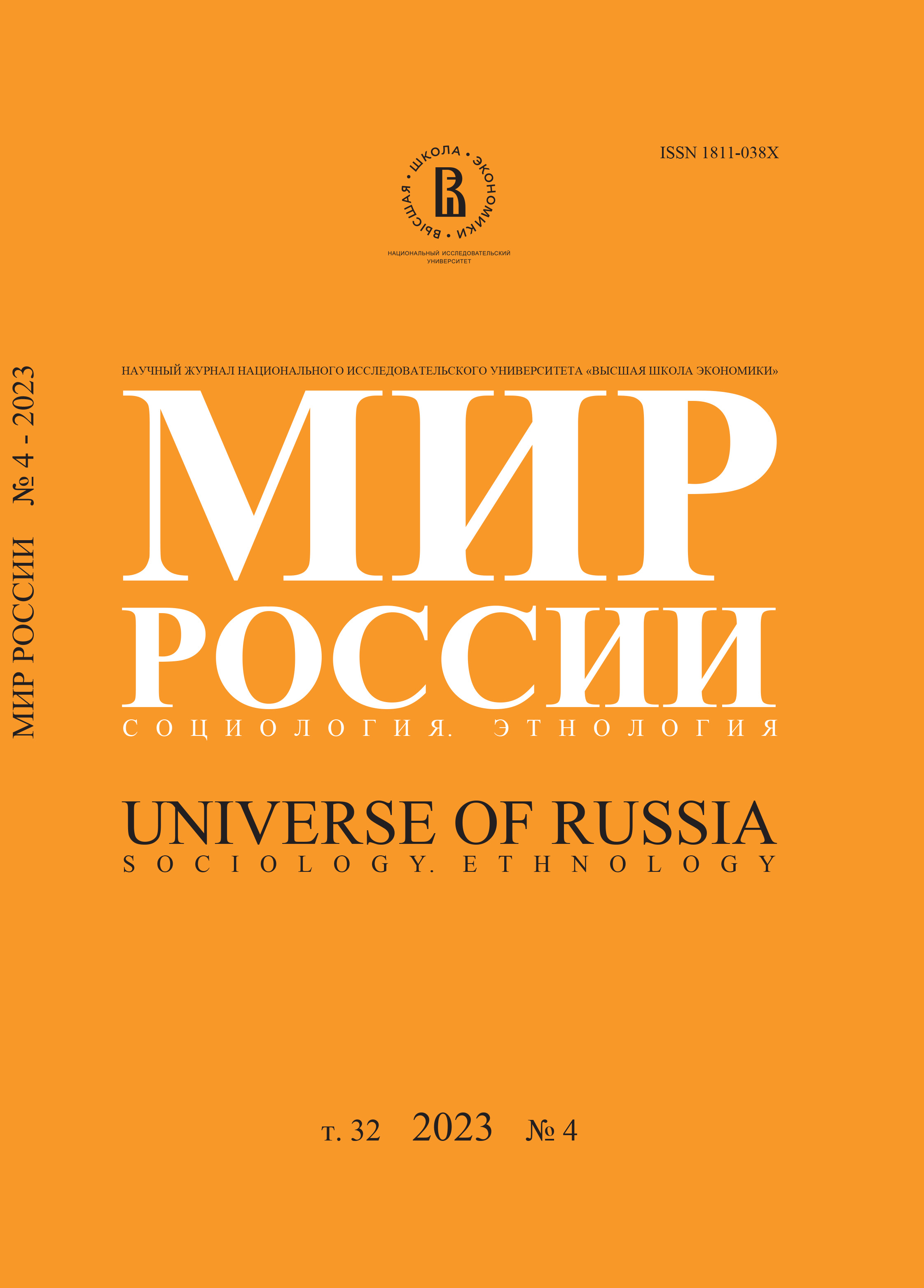The Dynamics of Life Activity and Factors of Teenagers Well-being
Abstract
The concept of child well-being differs in various disciplines, and historical and sociocultural contexts, and assumes different research approaches and measurement methods. Researchers can theoretically consider child well-being from the perspective of their future adult life or in its current state. Adolescence “is” a critical period in life and personality development. The scientific problem is the knowledge about the subjective psychological distress of a certain proportion of adolescents and the lack of data on the factors of their subjective psychological distress. Using RLMS-HSE data and a series of adolescent studies in Moscow in 1994, 2010, and 2022, we describe the dynamics of several indicators of the life activity of adolescents aged 14–16 years. These indicators include academic performance, foreign language proficiency, Internet and computer usage, involvement in sports, health, smoking, and alcohol consumption. The data reveal that since the early 2000s, adolescents’ quality of life has improved based on these indicators, and the proportion of adolescents satisfied with life has increased. The Moscow sample indicates an increase in the number of adolescents exhibiting an internal locus of control, high levels of altruism, and material wealth. We operationalized subjective psychological well-being in the context of hedonistic and eudemonistic approaches. We constructed a well-being indicator based on three variables: life satisfaction, self-esteem, and locus of control. The findings show that the material-housing level of families, as perceived by adolescents, holds more significance for their well-being than the family structure. Family factors, such as the absence of physical punishment in childhood, trust and equality in communication with parents, positive attitudes towards mother and father, and regular contact with a father, who does not live in the household, significantly correlate with adolescents’ psychological well-being. The research emphasizes the importance of parental enlightenment and skill in dealing with adolescents. A comparison of the results from the two samples, RLMS-HSE, 2021, and Moscow, 2022, concludes that, from the perspective of subjective well-being, young men’s attitude towards religion, church/mosque attendance, and satisfaction with their material situation hold significant role. For young women their satisfaction with their material situation and self-rated health are of importance.






